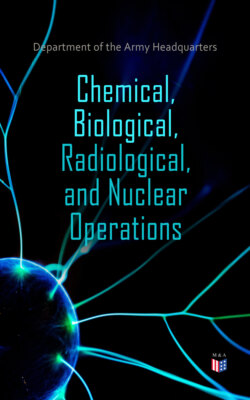Читать книгу Chemical, Biological, Radiological, and Nuclear Operations - Department of the Army Headquarters - Страница 14
На сайте Литреса книга снята с продажи.
1-9. National war.
ОглавлениеTable of Contents
a. In small wars it can be expected that hostile forces in occupied territory will employ guerilla warfare as a means of gaining their end. Accounts of recent revolutionary movements, local or general, in various parts of the world indicate that young men of 18 or 20 years of age take active parts as organizers in these disturbances. Consequently, in campaigns of this nature the Force will be exposed to the action of this young and vigorous element. Rear installations and lines of communications will be threatened. Movements will be retarded by ambuscades and barred defiles, and every detachment presenting a tempting target will be harassed or attacked. In warfare of this kind, members of native forces will suddenly become innocent peasant workers when it suits their fancy and convenience. In addition, the Force will be handicapped by partisans, who constantly and accurately inform native forces of our movements. The population will be honeycombed with hostile sympathizers, making it difficult to procure reliable information. Such difficulty will result either from the deceit used by hostile sympathizers and agents, or from the intimidation of friendly natives upon whom reliance might be placed to gain information.
b. In cases of levees en masse, the problem becomes particularly difficult. This is especially true when the people are supported by a nucleus of disciplined and trained professional soldiers. This combination of soldier and armed civilian presents serious opposition strategy to every move attempted by the Force; even the noncombatants conspire for the defeat of the Force.
c. Opposition becomes more formidable when the terrain is difficult, and the resistance increases as the Force moves inland from its bases. Every native is a potential clever opponent who knows the country, its trails, resources, and obstacles, and who has friends and sympathizers on every hand. The Force may be obliged to move cautiously. Operations are based on information which is at best unreliable, while the natives enjoy continuous and accurate information. The Force after long and fatiguing marches fails to gain contact and probably finds only a deserted camp, while their opponents, still enjoying the initiative, are able to withdraw or concentrate strong forces at advantageous places for the purpose of attacking lines of communication, convoys, depots, or outposts.
d. It will be difficult and hazardous to wage war successfully under such circumstances. Undoubtedly it will require time and adequate forces. The occupying force must be strong enough to hold all the strategical points of the country, protect its communications, and at the same time furnish an operating force sufficient to overcome the opposition wherever it appears. Again a simple display of force may be sufficient to overcome resistance. While curbing the passions of the people, courtesy, friendliness, justice, and firmness should be exhibited.
e. The difficulty is sometimes of an economical, political, or social nature and not a military problem in origin. In one recent campaign the situation was an internal political problem in origin, but it had developed to such a degree that foreign national interests were affected; simple orderly processes could no longer be applied when it had outgrown the local means of control. In another instance the problem was economic and social; great tracts of the richest land were controlled and owned by foreign interests; this upset the natural order of things; the admission of cheap foreign labor with lower standards of living created a social condition among the people which should have been remedied by orderly means before it reached a crisis.
f. The application of purely military measures may not, by itself restore peace and orderly government because the fundamental causes of the condition of unrest may be economic, political, or social. These conditions may have originated years ago and in many cases have been permitted to develop freely without any attempt to apply corrective measures. An acute situation finally develops when conditions have reached a stage that is beyond control of the civil authorities and it is too late for diplomatic adjustment. The solution of such problems being basically a political adjustment, the military measures to be applied must be of secondary importance and should be applied only to such extent as to permit the continuation of peaceful corrective measures.
g. The initial problem is to restore peace. There may be many economic and social factors involved, pertaining to the administrative, executive, and judicial functions of the government. These are completely beyond military power as such unless some form of military government is included in the campaign plan. Peace and industry cannot be restored permanently without appropriate provisions for the economic welfare of the people. Moreover, productive industry cannot be fully restored until there is peace. Consequently, the remedy is found in emphasizing the corrective measures to be taken in order to permit the orderly return to normal conditions.
h. In general, the plan of action states the military measures to be applied, including the part the forces of occupation will play in the economic and social solution of the problem. The same consideration must be given to the part to be played by local government and the civil population. The efforts of the different agencies must be cooperative and coordinated to the attainment of the common end.
i. Preliminary estimates of the situation form the basis of plans to meet probable situations and should be prepared as far in advance as practicable. They should thereafter be modified and developed as new situations arise.
